Abstract
Homing behavior was tested in pigeons (Columba livia) after removing a portion of the ventrolateral telencephalon, which receives extensive projections from the olfactory bulb and is comparable with the mammalian pyriform cortex. Ablated pigeons show unaffected cardiac responses to odorous stimuli but altered homing behavior. After the operation, the birds were trained by repeated flock releases along with control birds from a site 40 km from the loft. After being released singly from this familiar site, the ablated birds turned out to be unaffected by the operation. In releases from two unfamiliar sites, ablated birds, unlike control birds, were not homeward oriented and were mostly lost. The ablation of the pyriform cortex has the same effect on homing behavior as olfactory deprivation. It can be concluded that the pyriform cortex plays an important role in the specific mechanisms linking olfactory inputs with the navigational response.
Full text
PDF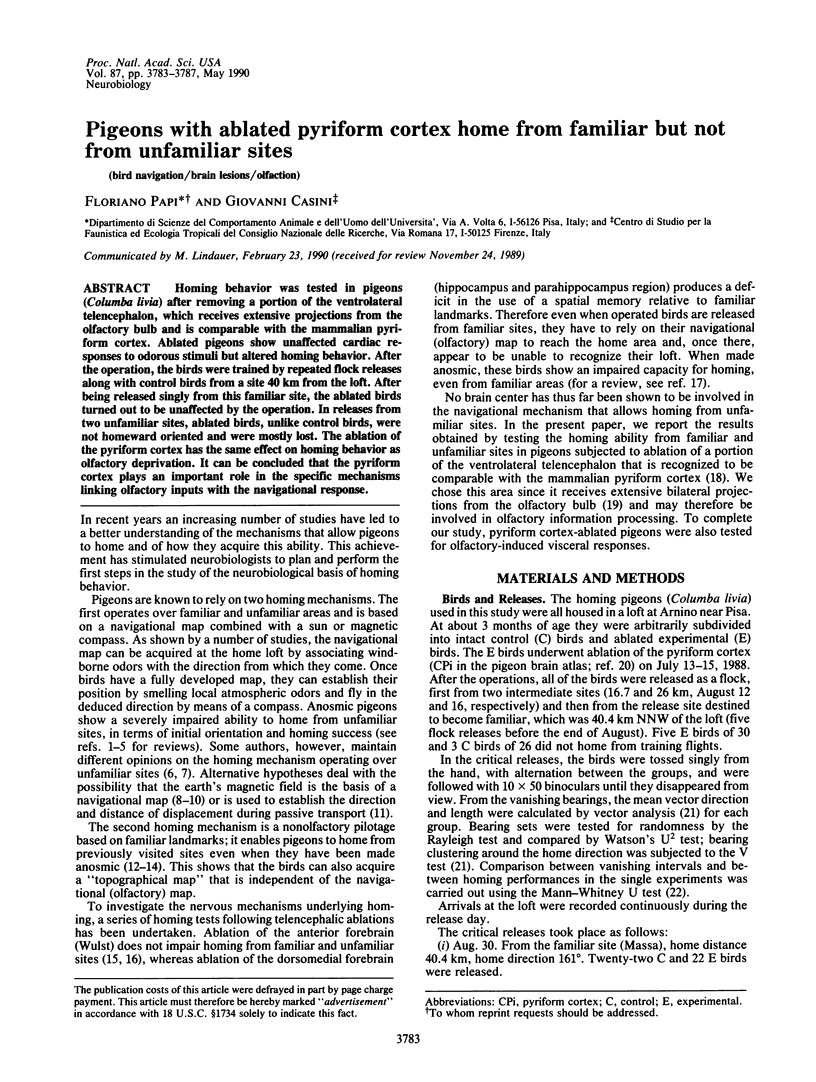
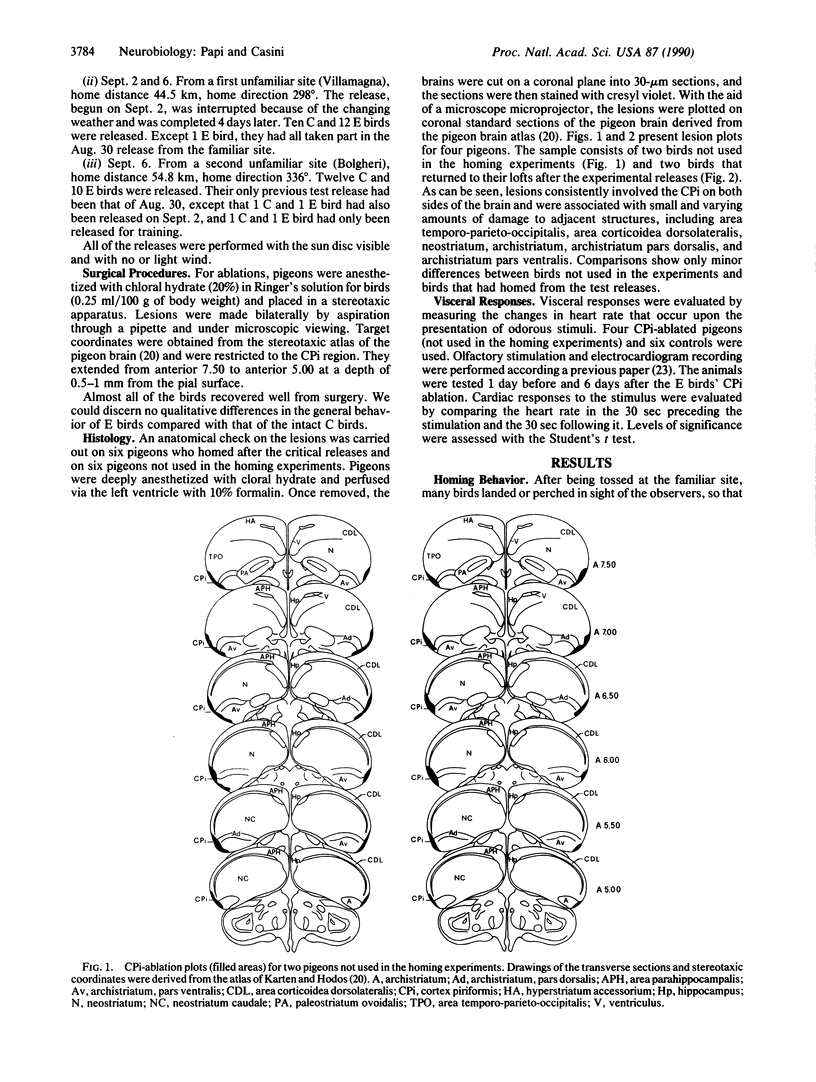
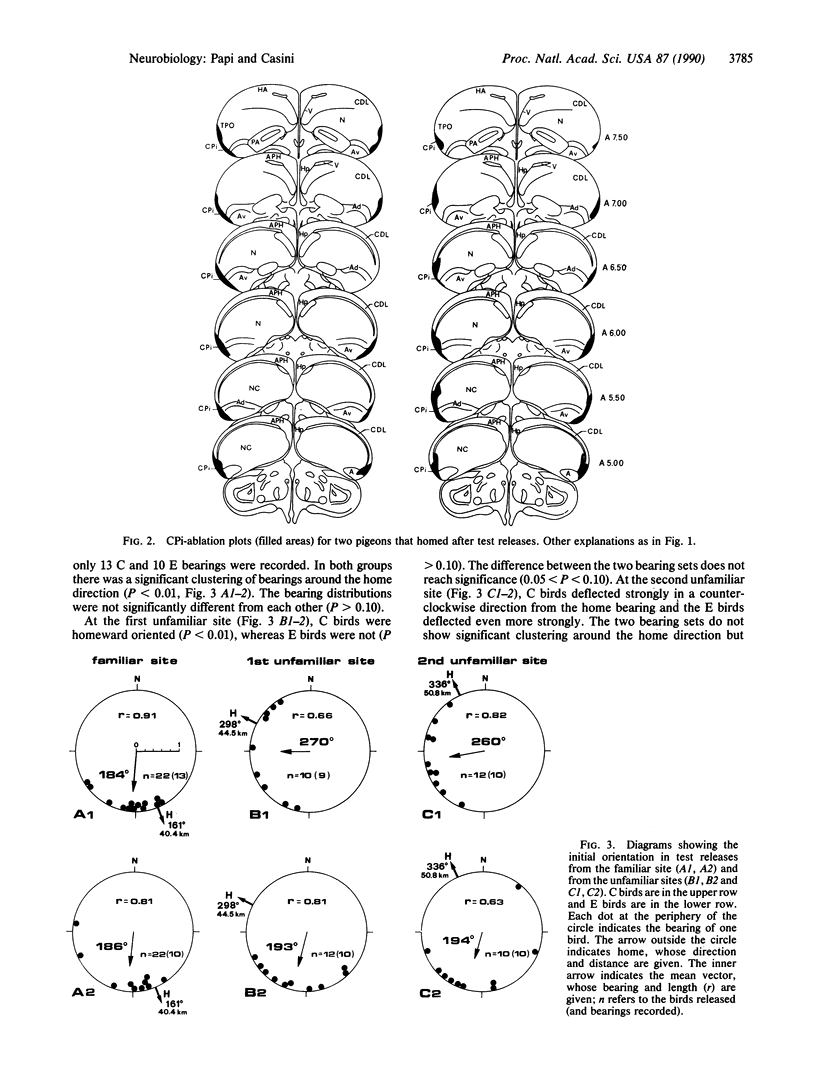
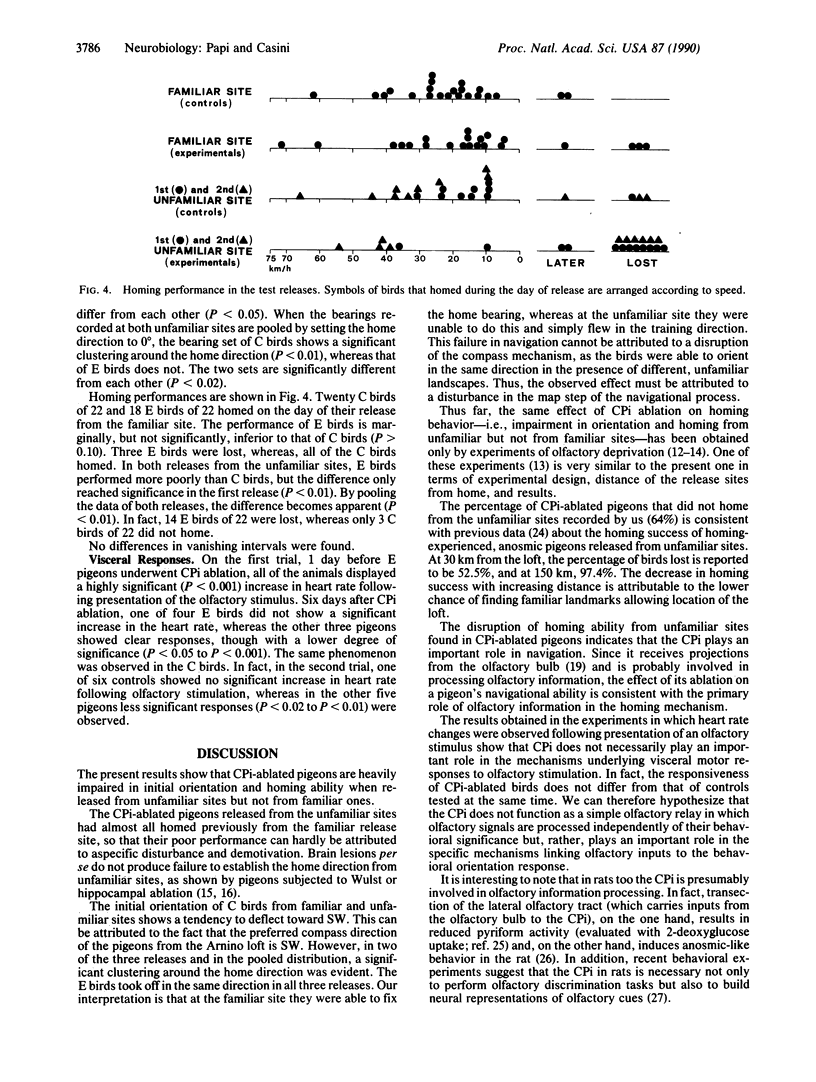
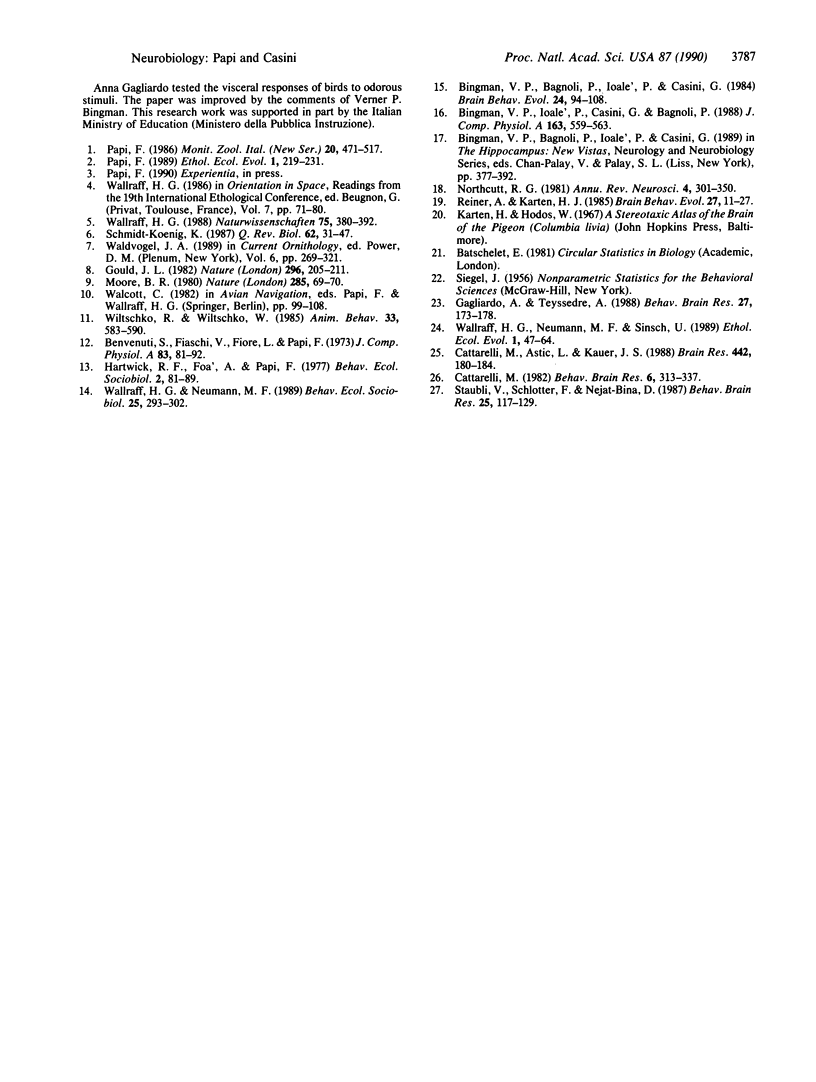
Selected References
These references are in PubMed. This may not be the complete list of references from this article.
- Bingman V. P., Bagnoli P., Ioalè P., Casini G. Homing behavior of pigeons after telencephalic ablations. Brain Behav Evol. 1984;24(2-3):94–108. doi: 10.1159/000121308. [DOI] [PubMed] [Google Scholar]
- Cattarelli M., Astic L., Kauer J. S. Metabolic mapping of 2-deoxyglucose uptake in the rat piriform cortex using computerized image processing. Brain Res. 1988 Feb 23;442(1):180–184. doi: 10.1016/0006-8993(88)91449-7. [DOI] [PubMed] [Google Scholar]
- Cattarelli M. Transmission and integration of biologically meaningful olfactory information after bilateral transection of the lateral olfactory tract in the rat. Behav Brain Res. 1982 Dec;6(4):313–337. doi: 10.1016/0166-4328(82)90016-x. [DOI] [PubMed] [Google Scholar]
- Gagliardo A., Teyssèdre A. Interhemispheric transfer of olfactory information in homing pigeon. Behav Brain Res. 1988 Feb;27(2):173–178. doi: 10.1016/0166-4328(88)90042-3. [DOI] [PubMed] [Google Scholar]
- Northcutt R. G. Evolution of the telencephalon in nonmammals. Annu Rev Neurosci. 1981;4:301–350. doi: 10.1146/annurev.ne.04.030181.001505. [DOI] [PubMed] [Google Scholar]
- Reiner A., Karten H. J. Comparison of olfactory bulb projections in pigeons and turtles. Brain Behav Evol. 1985;27(1):11–27. doi: 10.1159/000118717. [DOI] [PubMed] [Google Scholar]
- Staubli U., Schottler F., Nejat-Bina D. Role of dorsomedial thalamic nucleus and piriform cortex in processing olfactory information. Behav Brain Res. 1987 Aug;25(2):117–129. doi: 10.1016/0166-4328(87)90005-2. [DOI] [PubMed] [Google Scholar]
- Wallraff H. G. Navigation mit Duftkarte und Sonnenkompass: Das Heimfindevermögen der Brieftauben. Ergebnisse der Biologie, Fragen an Meteorologie und Luftchemie. Naturwissenschaften. 1988 Aug;75(8):380–392. doi: 10.1007/BF00377814. [DOI] [PubMed] [Google Scholar]


